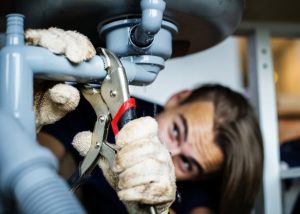Just how to Discover and Repair Water Leaks-- A Comprehensive Guide
Just how to Discover and Repair Water Leaks-- A Comprehensive Guide
Blog Article
We have stumbled on this post on Hacks to detect leaks below on the web and accepted it made sense to share it with you on my blog.

Early discovery of dripping water lines can mitigate a possible calamity. Aside from saving you money, it will certainly lessen the stress and stress. The moment you discover a leak, calling your plumber for repair work is the best option. Some small water leaks might not be visible. If you can not spot it with your nude eyes, right here are some hacks that help.
1. Check Out the Water Meter
Examining it is a proven means that assists you discover leakages. If it relocates, that indicates a fast-moving leak. This means you might have a sluggish leak that can even be below ground.
2. Examine Water Consumption
If you identify abrupt adjustments, regardless of your usage being the very same, it implies that you have leaks in your plumbing system. An abrupt spike in your bill shows a fast-moving leakage.
Meanwhile, a consistent rise on a monthly basis, despite having the very same practices, shows you have a sluggish leakage that's also gradually intensifying. Call a plumber to completely inspect your building, especially if you feel a warm area on your flooring with piping beneath.
3. Do a Food Coloring Test
30% comes from toilets when it comes to water intake. Test to see if they are running effectively. Drop flecks of food color in the tank and also wait 10 mins. If the shade in some way infiltrates your bowl during that time without flushing, there's a leak in between the storage tank as well as bowl.
4. Asses Outside Lines
Don't fail to remember to inspect your outside water lines also. Must water seep out of the link, you have a loosened rubber gasket. One small leak can squander heaps of water and spike your water costs.
5. Inspect and also Analyze the Situation
House owners should make it a practice to inspect under the sink counters and even inside cupboards for any bad odor or mold and mildew growth. These two warnings indicate a leak so prompt attention is needed. Doing routine evaluations, even bi-annually, can save you from a significant issue.
If you understand your residence is already old, keep a watchful eye on your heaters, pipes, pipelines and so on. Look for stainings as well as damaging as the majority of devices and pipelines have a life expectancy. They will additionally normally deteriorate as a result of deterioration. Do not wait for it to intensify if you suspect dripping water lines in your plumbing system. Call an expert plumber immediately so you do not wind up with an awful mess in your home.
Early detection of dripping water lines can alleviate a prospective disaster. Some little water leakages might not be visible. Inspecting it is a guaranteed method that helps you find leakages. One small leak can squander lots of water and also increase your water expense.
If you believe leaking water lines in your plumbing system, don't wait for it to rise.
How to Know If Your Home Has a Hidden Leak
Water Meter Reveals Inexplicable Water Usage
If you’d like to test whether or not there’s a leak somewhere in your home, you can do this using your water meter. Here is how to conduct the test:
Don’t use any water in your home for at least 30 minutes; this also means not turning on faucets or water-using appliances.
Go outside, and check your water meter for activity.
If your water meter shows that there was activity, even though no one was using any water, this proves that there is a leak in your home.Visible Mold or Mildew Growth
Leaks behind walls create moist, dark environments that allow mold and mildew to grow and thrive. Eventually, you might see mold growth forming on the wall closest to a hidden leak.
If mold is growing in an area that receives a high amount of moisture, such as a bathroom, it may simply be an indication that better ventilation is needed. However, if you see mold growth on a wall or the ceiling in an area where you would not expect, you probably have a hidden leak.
Musty, Mildew Odor
Sometimes you might not be able to see the mold or mildew that is growing as a result of a leak. However, the smell can give the problem away just as easily. If you catch a whiff of something musty, there’s a good chance that old water is collecting somewhere in your home that you can’t see.
Stained/Warped Walls, Ceilings, or Floors
When your home soaks up water, a variety of red flags can become visible, including ceiling stains, bubbling drywall, warped walls, and sagging floors. While these issues can be caused by excess humidity, they can also be signs that a pipe or plumbing connection has started leaking behind your walls.
Inexplicably High Water Bill
After a while, you get a general sense for what your water bill should be. If you own a pool or sprinkler system, your bill will tend to be higher during summer. However, if you receive a water bill that seems especially high, and you can’t figure out what caused it, then you may have a hidden leak somewhere that’s increasing your bill.
https://www.plumbingjoint.com/blog/2019/july/how-to-know-if-your-home-has-a-hidden-leak/

As an avid reader on Top leak detection hacks, I imagined sharing that section was sensible. You should take the time to distribute this blog if you enjoyed it. Thank-you for going through it.
Report this page